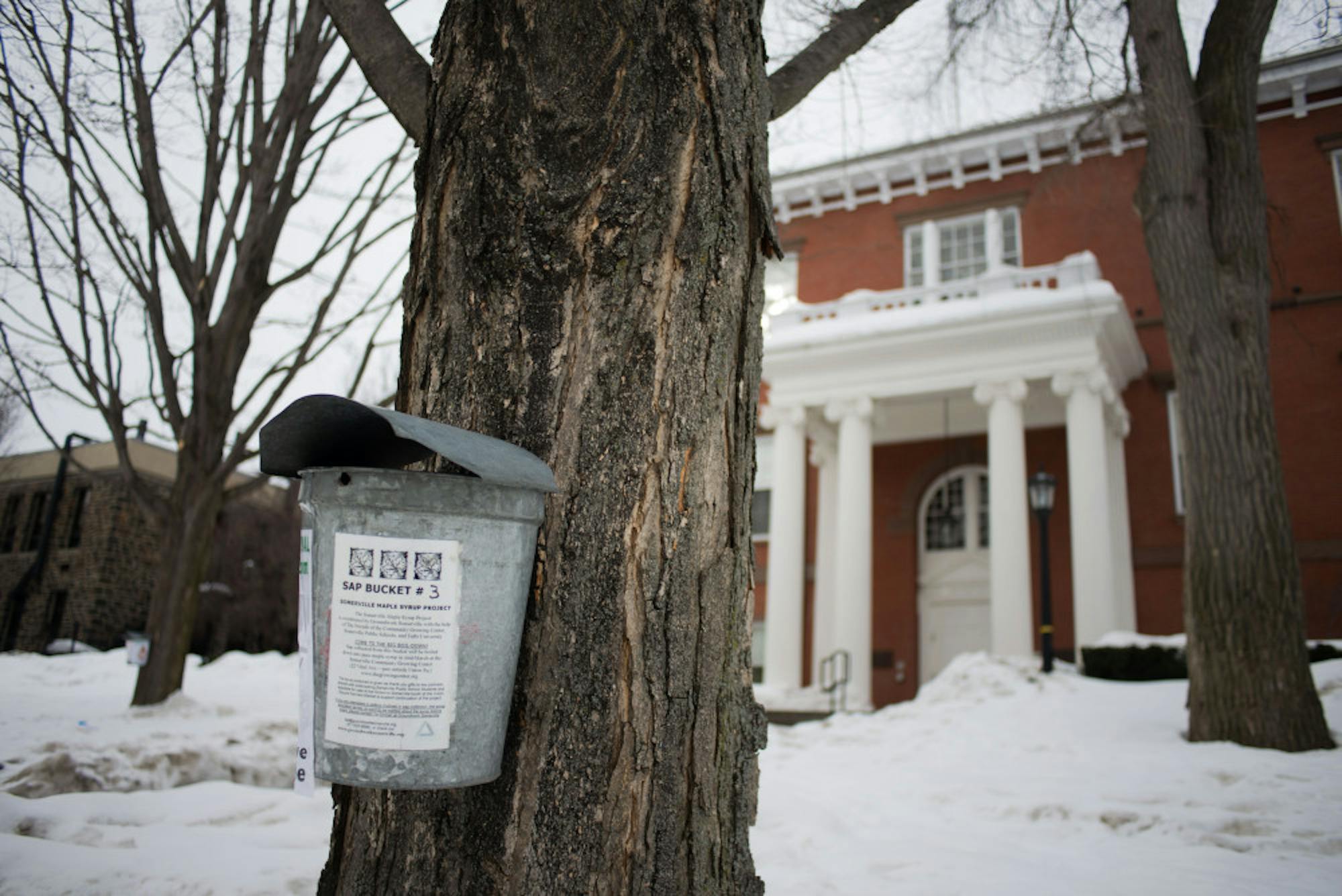Since the early 2000s, Tufts’ sugar maple trees on the Medford/Somerville campus have been a local source for sap. In 2008, Groundwork Somerville, a local organization whose mission involves sustained regeneration and bringing the community together to enact positive change in the environment, took charge of the sap collection in Somerville.
Chris Mancini, the executive director of Groundwork Somerville, elaborated on the group’s aims.
“The ultimate goal is to connect people to the food cycle system,” Mancini said. “Most of our programming is around healthy eating and doing cooking demonstrations with students, but [maple syrup] is so unique to New England, and even though it’s sugar based, it’s a great way to see the full process in a microcosm.”
According to its website, each winter, Groundwork Somerville works with the Somerville Community Growing Center, the Somerville Public Schools,Tufts University and local volunteers to collect sap from local sugar maple trees. Mancini said that this year, Groundwork Somerville located 41 sugar maple trees at Tufts that had the potential to produce sap.
However, Mancini and Sarah Lindsay, a MassLIFT-Americorps service learning coordinator for Groundwork Somerville, pointed out that some trees on campus might produce little or no sap due to urban stressors, like being near construction and being shaded out by other trees, as well as general stressors, including climate, pollution and soil compaction.
This winter’s extreme cold and record snow levels have also caused the trees to produce little sap, and has made it difficult for the group to gather enough sap for their annual boil down festival, according to Mancini and Lindsay. This year, the boil down will be held at the Somerville Community Growing Center on Saturday, March 7.
Mancini said that to prepare for the boil down, the group puts sap-collecting buckets on the south-facing side of the trees they have selected during the last week of January, and leave the buckets up until the first week of March, usually a period of six weeks. Typically, the buckets collect between 260 and 300 gallons of sap, which boils down to only six to seven gallons of maple syrup, according to Mancini.
Groundwork Somerville also works with local second grade students through a four-week curriculum about the process behind making maple syrup, culminating in an opportunity for students to witness the process first-hand.
“It’s fun to do something that appeals so directly to kids,” Lindsay said. “They all know what maple syrup is and none of them really know where it comes from and how to make it, so they get really excited.”
The maple syrup project at Tufts brings to the fore several intriguing concepts, according to Cathy Stanton, a senior lecturer in the department of anthropology. Stanton in particular remarked on the unique role of maple syrup in New England.
“[Maple syrup] creates some interestingly blurred lines,” Stanton told the Daily in an email. “We tend to think of maple sugaring as quintessentially rural, but here it is within one of the most densely-built urban environments in the U.S. And maple syrup is a food that falls somewhere between the wild and the cultivated. A lot of people associate it with indigenous foodways and 'olde tyme' New England, but it's still big business for a lot of farmers in the region, as both a food product and a tourist attraction.”
Stanton also noted Tufts' important role in the project.
“[The project] highlights the fact that Tufts has the biggest stand of tappable maple trees in Somerville, which reflects our large share of the city’s open green space,” Stanton said. “This makes our campus a unique resource for a project that’s trying to connect people in the city with locally-produced foods.”
Together, Tufts and Groundwork Somerville have worked to create a project that celebrates community, the environment and the cultural heritage of New England.
Tufts collaborates with Groundwork Somerville on maple syrup project

Sap is sourced from many of Tufts' maple trees for local syrup production.





